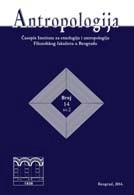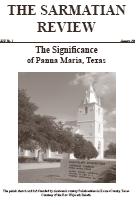

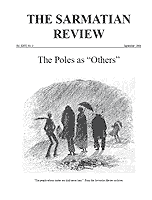
Keywords: Tageszeitung; Polish-Germna relations; Lech Kaczyński; Kazimierz Marcinkiewicz; Law and Justice; PiS party
"It does not often happen that Poles are flattered, and certainly not in the first decade of the twentieth century, when they lay defeated on all fronts. [...]"
More...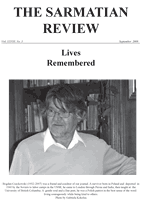
Keywords: New York Times; Kresy Portal
More...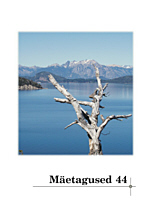
Keywords: Taste of city; Conference; Food marketing; Place marketing; branding; city;
In this special issue of Transnational Marketing Journal, we brought together a selection of articles drawn from presentations at the Taste of City Conference 2016: Food and Place Marketing which was held at the University of Belgrade, Serbia on 1st September 2016. We have supported the event along with Transnational Press London. We thank to Goran Petkovic, the Faculty of Economics at the University of Belgrade, and Goran’s volunteer students team who helped with the conference organisation. Mobilities are often addressed within social sciences varying across a wide range of disciplines including geography, migration studies, cultural studies, tourism, sociology and anthropology. Food mobilities capture eating, tasting, producing and consuming practices as well as traveling and transferring. Food and tastes are carried around the world, along the routes of mobility through out the history. As people take their own culture to the places, they take their food too. Food meets and mingles with other cultures on the way. Fusion food is born when food transcends the borders and mix with different ingredients from different culinary traditions. Although certain places are associated and branded with food, it is a challenging job to understand the role of food and taste in forming and reformulating the identity of places.
More...Keywords: Medieval Serbia; will; bequest; legacy; Byzantine law; Roman law; Slavic laws
In this article we aimed to present the idea of bequeathing in the old Serbian law. Serbs, just as the other Slavic tribes, had a particular way of life, and customs that included the phenomenon of zadruga, extended family which was formed by several families who shared property. In that reality, it was not possible to divide estate, nor to dispose it individually. Therefore, writing a will or establishing some likewise division by the words of last will orally, probably was something that was not done, or at least was limited only to chattel.However, researching on the oldest mentions of Serbs, one can notice that its medieval rulers, and sometimes noblemen, had the right to determine their successors and to bequeath to them a certain part of their estate. That was usually done by a father – a king, to his sons. That is the model that is present in the history of early medieval era in various Slavic tribes.On the other side, will as a private legal deed is for the first time mentioned in the legal code of XIII century, Zakonopravilo of Saint Sabba, following the Byzantine legal provisions. Wills must have been used if not earlier than the XIII century, then certainly in this time, around the second decade of the XIII century. Nevertheless, nature of the Serbian Medieval wills (or the other acts of bequeathing, such as gifts ad pias causas) might be a subject of deeper analysis where they could be compared to the other medieval Slavic wills, originated from the scope of medieval Croatia, Russia, Great Moravia, Bohemia, and Poland. We tried to list the oldest known Serbian wills and make some remarks in relation to their common characteristics.
More...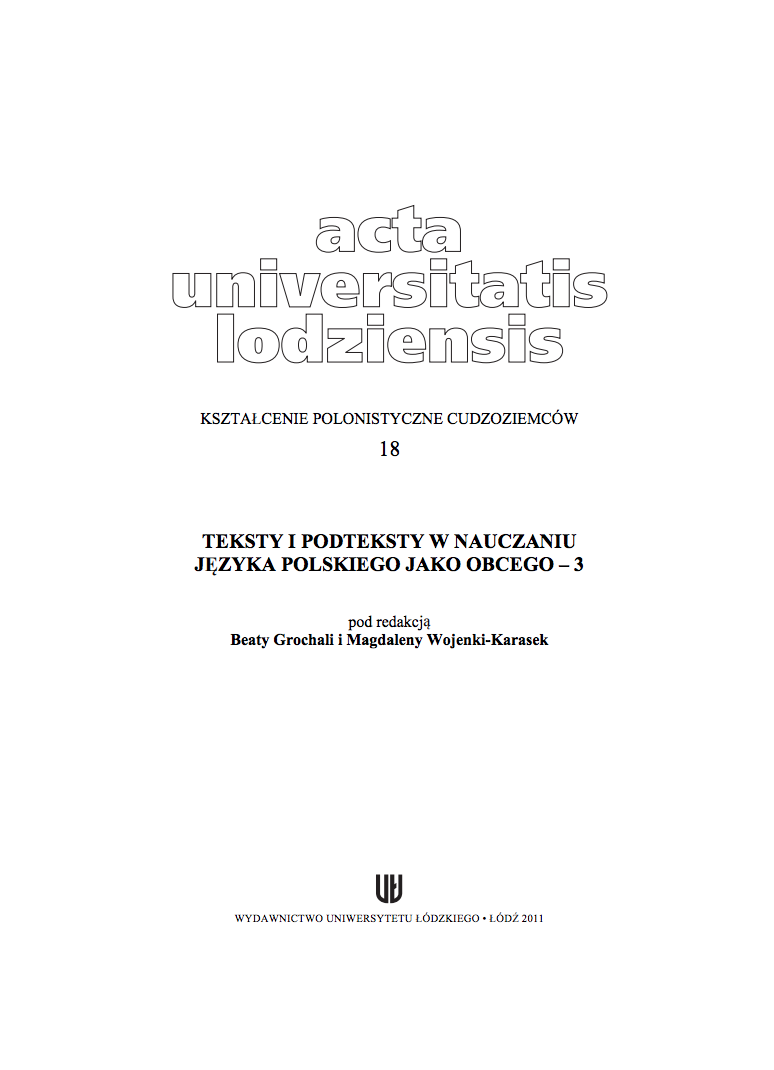
Keywords: literary text in jpjo teaching; motivation to learn jpjo; surveys;
The paper presents the results of the questionnaire research on a group of students learning Polish as a foreign language. Our goal was to determine on which level of knowledge of Polish students read Polish literary text during language classes. Especially, we wanted to know if the use of literature in class encourages the students to read Polish literary text on their own. We present the profile of the group – language level, age, motivation, and expectations of the students who read Polish literature not only during the language classes but also on their own.
More...Keywords: Didactics of Russian;speech;basic speech activities;
Review of: Didactics of Russian II - speech and its development through basic speech activities
More...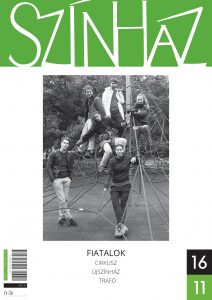
Keywords: art; young generation; theatre makers; young choreographers; contemporary dance;
Kinga Szemessy asks four young Hungarian choreographers about their entrance into the profession, and their relation with other (older) generations of choreographers. Dorottya Podmaniczky, Laura Tóth, Júlia Vavra, and Zsófia Tamara Vadas answers
More...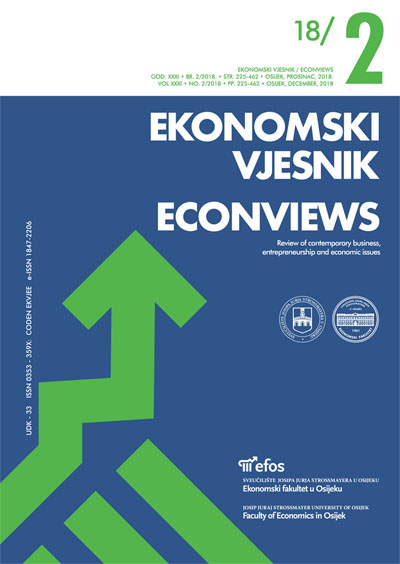
Review of: Aleksandar Erceg (ed.)Franchising in Eastern Europe - yesterday, today, tomorrow, Josip Juraj Strossmayer University in Osijek, Faculty of Economics in Osijek, Osijek, 2018
More...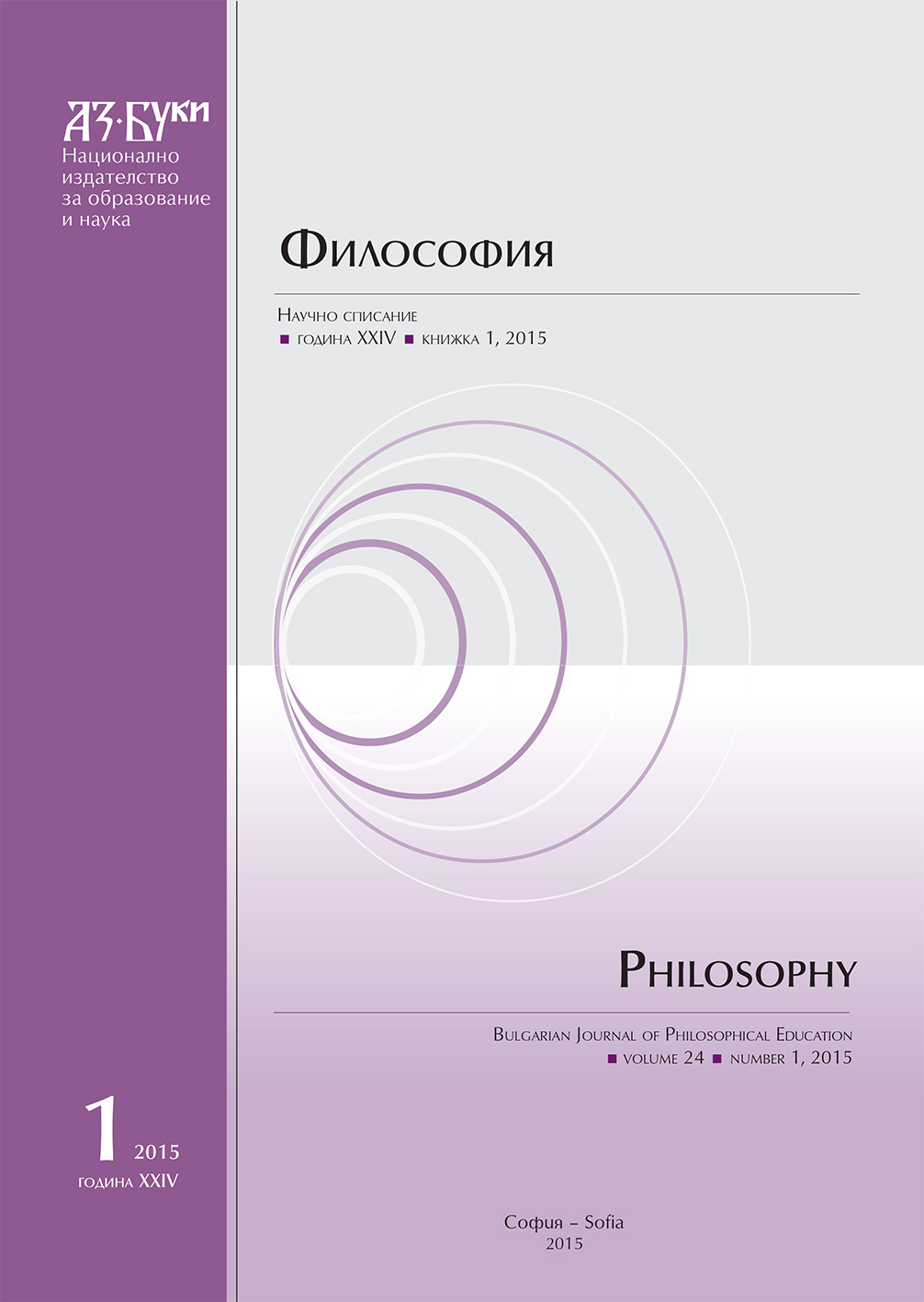
Keywords: conference; philosophy; antropology;thanatology;
Since 2008, the Romanian academic world has been enriched by a consistent event focused on thanatology, as Alba Iulia, a Transylvanian city with a medieval citadel, has been the setting of a great international conference, inspired by the great biennial Death, Dying and Disposal Conference that needs no presentation.
More...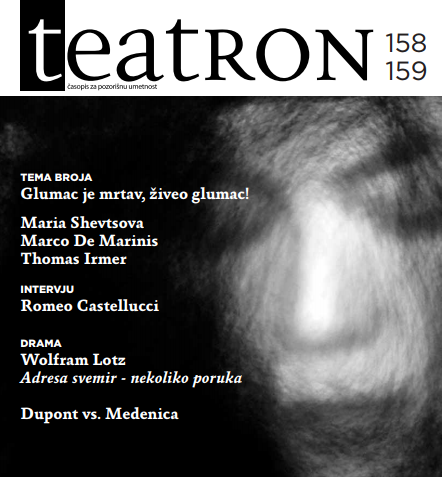
Keywords: 57. Sterijino pozorje; Ksenija Radulović;
Uprkos znatno redukovanom broju premijera u protekloj sezoni, može se reći da je selektor 57. Sterijinog pozorja, Ksenija Radulović, vodeći se visokim kriterijumima, oformila selekciju jasnog i prilično smelog koncepta. U vreme kada se pozorišta okreću izrazito komercijalnom sadržaju, ovogodišnje Pozorje daje prostor autorima koji zadržavaju kritički odnos prema društvu, savremenim temama pristupaju hrabro i direktno, istovremeno istražujući nove dramske i scenske forme. Dok je prethodno Pozorje obeležio dokumentarni teatar, ove godine fokus se ipak vraća na dramski tekst i, što je posebno značajno, na stvaralaštvo mladih pisaca. Pored predstave nastale po drami naše vodeće dramske spisateljice Biljane Srbljanović (Nije život biciklo), u selekciji su se našle dve praizvedbe dramskog teksta novih autora: Olge Dimitrijević (Radnici umiru pevajući) i Radmile Smiljanić (Bunar).
More...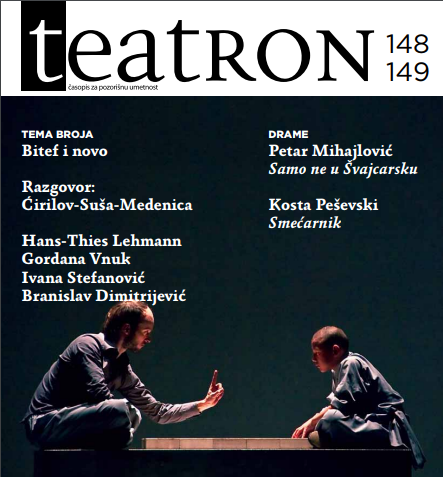
Keywords: William Shakespeare; The Taming of the Shrew;
Balet Ukroćena goropad, u koreografiji i režiji Krunoslava Simića, hronološki gledano, nastaje u stvaralački zreloj fazi ovog našeg istaknutog i više puta nagrađivanog koreografa. Ispunjeno osnovnim oblicima komedije karaktera i komedije intrige, izbor istoimenog Šekspirovog dela kao literarne osnove za postavku baleta već sâm po sebi predstavljao je i više nego zahvalno i inspirišuće dramaturško polazište.
More...Keywords: humani kapital; ruralne sredine; ruralni razvoj; zaposlenost;
Osnovni problemi sa kojima se suočavaju ljudi u ruralnim sredinama tiču se nepovoljne demografske strukture i nižeg nivoa i kvaliteta javnih usluga, a pre svega obrazovanja, kao važnog faktora razvoja ovih oblasti. U poređenju sa pretežno urbanim i mešovitim regionima EU, za pretežno ruralna područja je karakteristična najniža stopa zaposlenosti, posebno žena, mladih ljudi i starijih. Zbog toga se kao jedan od ključnih ciljeva Zajedničke agrarne politike EU za period od 2014. do 2020. godine ističe rast zaposlenosti i podrška razvoju ruralnih sredina. Cilj rada je analiza humanog kapitala, kao ključne determinante razvoja ruralnih područja EU, kroz poređenje sa pretežno urbanim i mešovitim regionima, uz poseban akcenat na problem zaposlenosti u ovim sredinama, kao važnog faktora očuvanja humanog kapitala. Posebna pažnja biće posvećena zemljama EU koje se izdvajaju kao pozitivni primeri, ali i zemljama koje su, posmatrano sa ovog aspekta, ispod proseka.
More...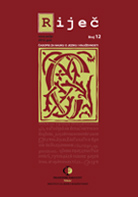
Keywords: process of carnivalization; Menippean satire; carnival misalliance; carnival square; language of the space
The process of carnivalization is typical for the prose of Miodrag Bulatovic. An ingenious combination of divine and non-divine, incorporating everything that non-carnival order alienates, embodied in a special carnival category - carnival misalliances, is established as a basic principle in the construction of all elements of narrative structure of the novel Heroj na magarcu (A Hero on a Donkey). The reality of the narrative is organized by the principles of Menippean satire and is, mainly, realized through the ceremony, parade, scenes of scandals, inappropriate speech, and outbursts of various types. The main scene where the most massive celebrations take place is the town square in Bijelo Polje that has a role of the truecarnivalsquare. The scene of carnival games and mass celebrations in small, rutted and formless square of occupied Montenegrin town in the narrative completely depict the basic carnival categories. Besides the square, as the central place, two smaller special structures also create semantic burden in the novel Maliceva jazbina (Malić’s lair) i Kraljičin nužnik (Queen’s privy). Malić’s lair, in of the main character, is designed as an ideal place for the elimination of all cultural constraints and limitations, and the modeling of the characters in such a place is largely uncultivated, instinctive and animal. Queen’s privy by grotesque combination of its primary purpose and divine function becomes and represents almost an ideal carnival space and celebrations that happen within it are purely of carnival character. Spatial structures as a powerful organizing centers around which a complex non spatial meanings are formed, in the novel Heroj na magarcu, bear a specific semantic burden and have powerful disintegration effect in the novel.
More...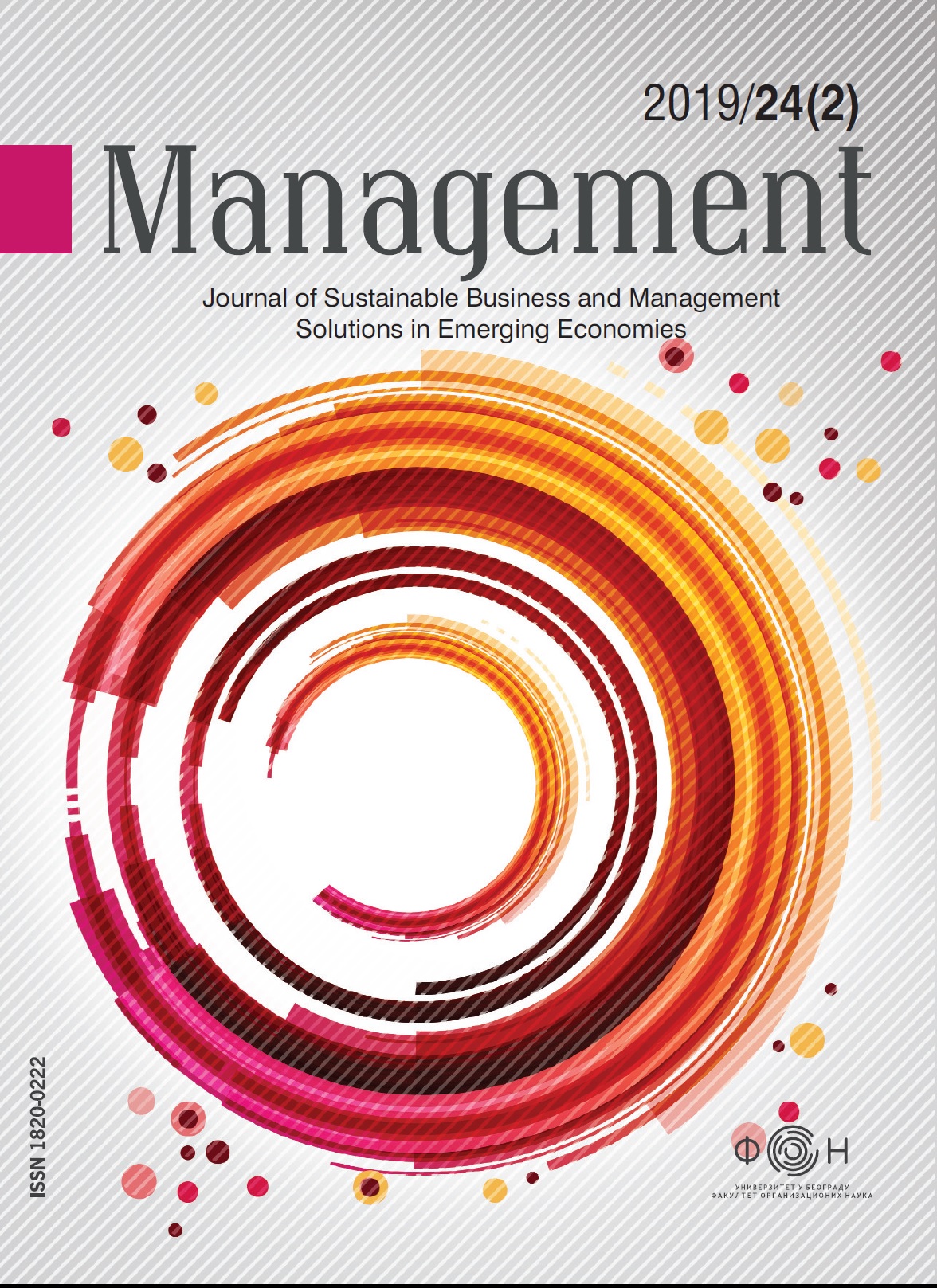
Keywords: Е - voting;e-government services;m-voting;e-voting applications;
Research question: This paper discusses e-voting as an integral part of e-government in developing countries. E-voting enables automation of casting and counting votes. Motivation: The main goal was to investigate the readiness of both the public sector and citizens for switching from common “paper” voting method to electronic system-based voting. In order to improve democracy and trust in the election process (IDEA, 2011), the e-voting system should be reliable, accurate and secure (Mauw, Verschuren, & de Vink, 2007). The example that should be followed is the Estonian e-voting system (Drechsler, 2004). Idea: We proposed a comprehensive e-voting model that includes five components: e-voting services, IT infrastructure, participants’ registration, components integration and a system for counting and reporting. Security is the most important issue that should be overcome by using the cryptographic protocols. Reliability and availability of the e-voting system should not be neglected, and it should be able to save all verified casted votes. Data: In order to examine the readiness and awareness of e-voting potentials in a developing country, we conducted a survey that included 152 persons from three different groups: individuals, legal entities and e-government employees. Tools: In order to establish relationships among opinions of the three groups of respondents to the survey that was conducted, a comparative analysis was performed. For this purpose the questions were divided into four categories. Findings: As it was expected, the study results have showed that survey participants find security, lack of qualified staff and mistrust of the older generations towards new technologies as the crucial issues in developing and implementing the e-voting model. Based on the responses the cost reduction, ease of use and efficiency improvement are recognized as categories that could be realized by implementation of the e-voting system. Contribution: The results show the respondents’ opinion regarding the e-voting system introduction as a legitimate voting tool. It can reduce abuse, voting costs and manual errors.
More...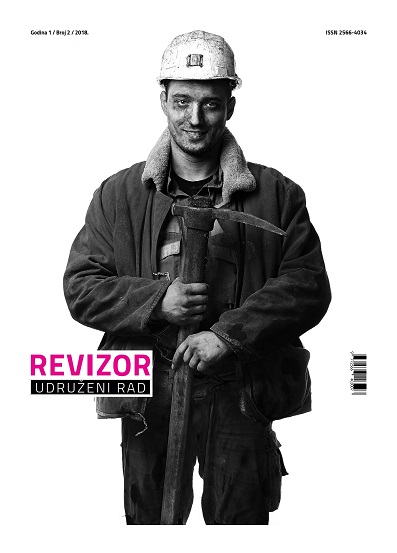
Keywords: Journal Revizor; social issues; Tuzla; Bosnia and Herzegovina; politics; social development;
Tekstovi u ovome broju fanzina Revizor okupljeni su pod zajedničkim naslovom “udruženi rad”, i obrađuju lokalne teme iz Tuzle. Ideja da Revizor postane nomadsko glasilo nastala je 2017. godine u Tuzli kada su umjetnici i aktivisti iz Bihaća i Tuzle zamišljali intervenciju koja će povezati razne dijelove Bosne i Hercegovine – koji su još uvijek razdvojeni ratnom infrastrukturnom logikom. Razdvojenost zbog zaostale infrastrukture i zbog ratne logike podjele zemlje, namjera je prevazići proizvodnjom drugačijih društvenih odnosa među njenim akterima na sceni. [...]
More...